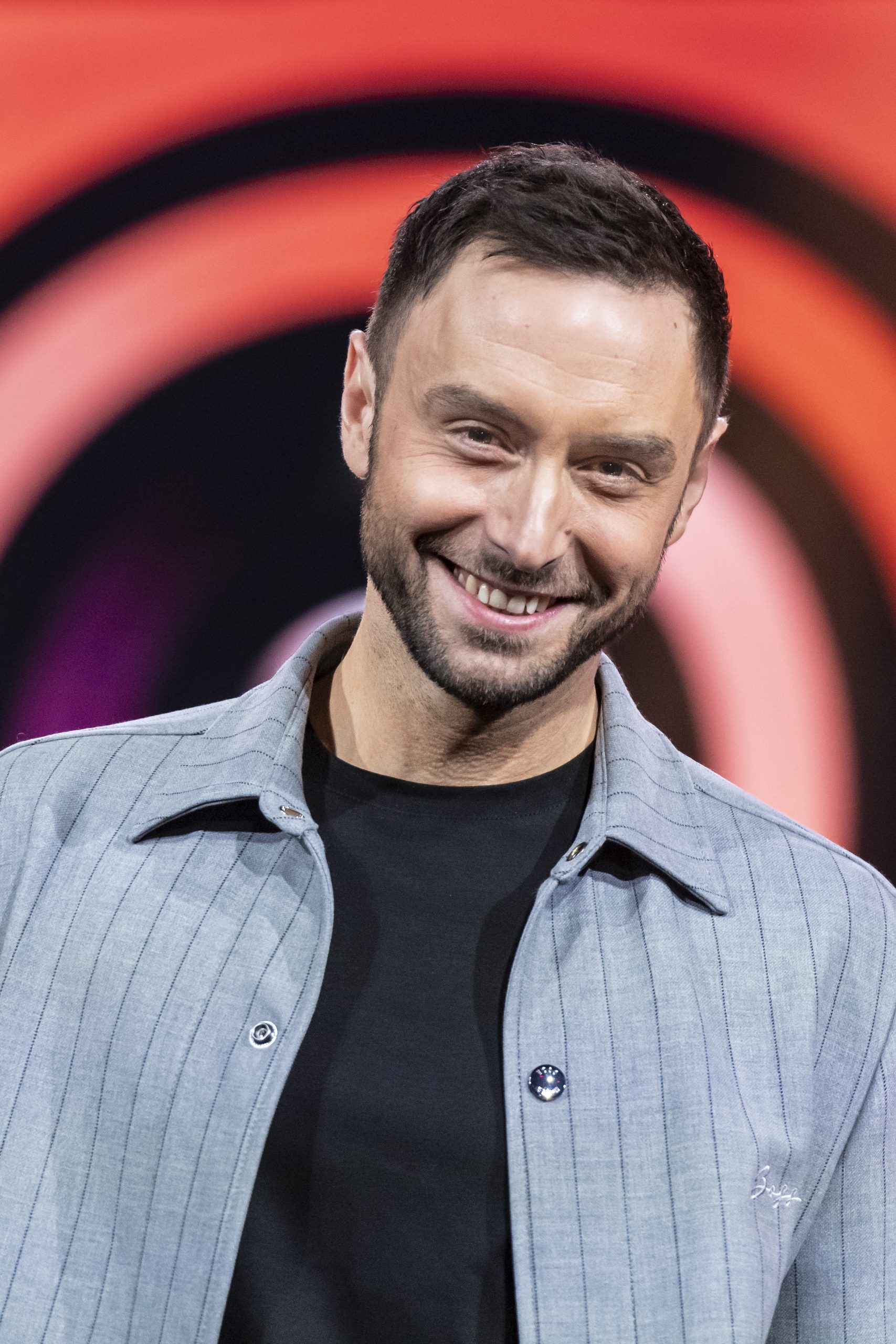Måns Zelmerlöw: Swedish Entertainment Icon and Eurovision Champion
Måns Zelmerlöw has established himself as one of Sweden’s most versatile entertainment figures, seamlessly transitioning between music, television hosting, and theatrical performance throughout a career spanning nearly two decades. At 37, the Eurovision champion continues to expand his creative reach while maintaining the charismatic stage presence and vocal talent that first captured public attention in his early twenties.
Early Years and Artistic Foundations
Born Måns Petter Albert Sahlén Zelmerlöw on June 13, 1986, in the university city of Lund in southern Sweden, his early environment provided rich cultural exposure. Raised in an academically-oriented family—his father is a professor and his mother a physician—Zelmerlöw was encouraged to pursue both intellectual and artistic interests from a young age.
His first meaningful encounters with performance came through youth theater and school music programs, where he discovered a natural affinity for the stage. Former teachers recall his unusual combination of technical discipline and innate charisma, qualities that would later define his professional approach.
“Even as a teenager, Måns showed this remarkable ability to connect with audiences,” remembered a former music instructor. “He had the technical skills, certainly, but more importantly, he understood performance as communication—how to make people in the room feel something. That can’t really be taught.”
This foundation in theatrical performance provided Zelmerlöw with versatility that would later distinguish him from peers with more conventional pop music backgrounds. His comfort across multiple performance contexts—from intimate acoustic settings to elaborate production numbers—has become a signature element of his career.
Early Television Exposure and Initial Recognition
Zelmerlöw’s path to public recognition began in 2005 when, at 19, he participated in the second season of “Swedish Idol,” the national version of the global television franchise. While placing fifth overall—a respectable but not career-guaranteeing position—his performances revealed a distinctive pop sensibility and stage presence that resonated with viewers.
Industry observers from this period note that Zelmerlöw already displayed the comprehensive entertainment skills that would later define his career, rather than merely showcasing vocal ability. “What distinguished Måns from most talent show contestants was how fully-formed his performance instincts already were,” recalled a Swedish television producer. “He understood camera angles, audience connection, and how to interpret a song beyond just singing the notes.”
This early television exposure led quickly to musical theater opportunities, with Zelmerlöw securing roles in high-profile Swedish productions of “Grease” and “Romeo and Juliet.” These theatrical experiences further developed his performance range and provided professional discipline that would serve him throughout his career.
“The musical theater training proved invaluable,” noted a director who worked with Zelmerlöw during this period. “It taught him consistency—how to deliver night after night regardless of personal circumstances. That reliability has been a hallmark of his professional reputation ever since.”
Initial Music Career and Television Hosting
Following his theatrical success, Zelmerlöw began developing his recording career with the 2007 release of his debut album “Stand By For…” The project achieved gold certification in Sweden and yielded several successful singles, establishing him as a legitimate recording artist beyond his television and theater credentials.
This period also marked Zelmerlöw’s first experiences with the Melodifestivalen competition—Sweden’s extremely popular national selection for the Eurovision Song Contest. His 2007 entry “Cara Mia” placed third, creating significant public momentum despite not winning the opportunity to represent Sweden at Eurovision.
Parallel to his music career, Zelmerlöw began developing as a television presenter—a role that would become equally important to his professional identity. His natural ease before cameras and quick-witted communication style made him particularly suited to live television formats, leading to hosting opportunities on major Swedish programs.
“Måns brought something fresh to hosting—this combination of genuine warmth and professional precision,” explained a Swedish broadcasting executive. “He could manage the technical elements of live television while maintaining an authentic connection with both studio guests and viewers at home. That’s a rare combination that made him incredibly valuable to networks.”
This dual-track career development—simultaneously pursuing music and television opportunities—established a professional template that Zelmerlöw would continue throughout his career. Rather than focusing exclusively on recording, he built a diversified entertainment portfolio that provided both creative variety and career stability.
Eurovision Journey and International Breakthrough
After multiple attempts at the Melodifestivalen competition, Zelmerlöw achieved his breakthrough in 2015 with “Heroes,” a contemporary pop anthem featuring innovative staging that incorporated animated projections interacting with his live performance. The song dominated the national final and earned Sweden the right to compete at the Eurovision Song Contest in Vienna.
“‘Heroes’ represented the perfect synthesis of Måns’ abilities,” observed a Eurovision historian. “The song itself was immaculately crafted Swedish pop, his vocal performance was technically flawless, and the staging demonstrated his theatrical background. It utilized every element of his artistic toolkit in one cohesive package.”
At the Eurovision final on May 23, 2015, Zelmerlöw delivered a commanding performance that earned 365 points and secured Sweden’s sixth victory in the competition. The win was notable not just for its point margin but for the near-universal acclaim from both juries and public voters across Europe—a rarity in a contest often divided between critical and popular opinion.
Beyond the competitive achievement, the Eurovision victory significantly expanded Zelmerlöw’s international profile. “Heroes” charted across Europe, reaching top positions in multiple countries and introducing him to audiences previously unfamiliar with his work. The exposure positioned him in the select group of Eurovision winners who successfully leverage the competition into broader international careers.
Television Hosting and Entertainment Ambassador
Following his Eurovision victory, Zelmerlöw’s television career accelerated, with his most high-profile opportunity coming in 2016 when he co-hosted the Eurovision Song Contest in Stockholm alongside Swedish comedian Petra Mede. Their partnership received widespread acclaim for combining professional polish with genuine chemistry and humor.
The opening number “Love Love Peace Peace”—a satirical celebration of Eurovision clichés—became particularly celebrated, demonstrating Zelmerlöw’s ability to both embody and gently mock the competition he had won the previous year. Television critics noted his comfortable navigation between sincere appreciation for the contest and self-aware humor about its excesses.
“What made Måns so effective as a Eurovision host was that he clearly respected the competition while understanding its occasional absurdity,” explained a broadcasting executive involved with the production. “That balanced perspective made him relatable to both dedicated fans and casual viewers—he neither condescended to the material nor took it too seriously.”
This hosting success established Zelmerlöw as a Eurovision ambassador and led to continued involvement with the competition, including appearances at national finals across Europe and participation in various commemorative events. This association has made him one of the contest’s most recognizable faces beyond his winning entry.
Beyond Eurovision, Zelmerlöw continued to develop his television presence in Sweden with prominent hosting roles on programs including “Allsång på Skansen,” a beloved summer music series with significant cultural importance in Swedish public life. These positions further cemented his status as a national entertainment figure rather than simply a recording artist.
Continued Musical Evolution
While building his television career, Zelmerlöw maintained consistent musical output, releasing the albums “Perfectly Damaged” (2015), “Chameleon” (2016), and “Time” (2019). These projects demonstrated artistic growth while maintaining the polished pop sensibilities that had defined his earlier work.
Music critics have noted Zelmerlöw’s skill at incorporating contemporary production trends without sacrificing melodic accessibility—a balance that has allowed his music to evolve while maintaining connection with his established audience. This approach reflects Sweden’s broader pop music tradition, which values innovation within commercially viable frameworks.
“Måns represents the best qualities of Swedish pop craftsmanship,” observed a music industry analyst. “His work is technically immaculate and commercially accessible without being formulaic. There’s always attention to production detail and song structure, but never at the expense of emotional connection.”
His live performances have similarly evolved, with concert reviewers noting increased confidence and stage command compared to his early career appearances. Tours throughout Europe following his Eurovision victory demonstrated his ability to adapt to various venues and audiences, from intimate club settings to festival main stages.
“What distinguishes Måns as a live performer is his consistency across different contexts,” noted a concert promoter who has worked with him on multiple tours. “He brings the same professionalism and audience connection whether he’s performing for 20,000 people at a summer festival or 500 in a theater. That reliability makes him extremely valuable in the live market.”
Philanthropic Endeavors and Social Engagement
Beyond his entertainment career, Zelmerlöw has developed a significant philanthropic presence, particularly through the Zelmerlöw & Björkman Foundation, which he co-founded with former tennis player Jonas Björkman. The organization focuses on educational initiatives in Africa, providing both infrastructure and training resources to create sustainable learning opportunities.
Colleagues involved with the foundation describe Zelmerlöw’s approach to philanthropy as hands-on rather than merely symbolic. “Måns doesn’t just lend his name to the foundation—he’s genuinely engaged with its operations and regularly visits project sites,” explained a foundation associate. “He’s particularly focused on creating self-sustaining programs rather than dependency relationships.”
This commitment to social impact extends to his participation in various charitable initiatives within Sweden, including telethons and benefit concerts supporting causes ranging from childhood cancer research to refugee assistance. Friends describe these activities as reflecting genuine personal values rather than career calculation.
“Social engagement isn’t something Måns does for public relations—it’s central to how he understands his platform and responsibilities,” noted a longtime friend. “He’s always been aware that his visibility creates opportunities to direct attention to important issues, and he takes that aspect of his career very seriously.”
Personal Life and Growth
While maintaining a fairly public professional presence, Zelmerlöw has generally approached his personal life with greater discretion. His 2019 marriage to British actress Ciara Janson marked a significant personal milestone, with the couple subsequently welcoming two children and establishing a family life divided between residences in the United Kingdom and Sweden.
Friends describe this family focus as bringing new perspective to Zelmerlöw’s approach to both career and personal priorities. “Becoming a father has definitely influenced how Måns thinks about his work-life balance,” explained a close associate. “He’s become more selective about projects, prioritizing quality over quantity and making decisions that allow for meaningful family time.”
This evolution has coincided with what colleagues describe as increasing personal confidence and artistic autonomy. Where early career decisions were often influenced by industry advisors and commercial considerations, Zelmerlöw has gradually assumed greater control over his creative and professional choices.
“There’s been a noticeable shift in how Måns approaches career decisions,” observed a music industry executive who has worked with him across multiple projects. “Earlier, he was understandably focused on establishing himself and proving his capabilities. Now there’s more confidence in his own instincts and willingness to pursue projects primarily because they’re personally meaningful rather than strategically advantageous.”
Cultural Position and Artistic Legacy
As Zelmerlöw’s career has progressed, cultural commentators have increasingly recognized his significance within Sweden’s rich entertainment tradition. While not claiming the global reach of groups like ABBA or the artistic innovation of performers like Robyn, he represents a particular Swedish entertainment archetype: the versatile, professionally impeccable performer who maintains consistent quality across multiple disciplines.
“Måns belongs to a specifically Swedish tradition of entertainment generalists—performers who can sing, act, host, and generally connect with audiences across different formats,” explained a Swedish cultural historian. “This versatility has always been particularly valued in Swedish entertainment culture, which tends to reward professional range rather than narrow specialization.”
Within Eurovision culture specifically, Zelmerlöw has established a distinctive legacy as both champion and ambassador. His winning performance is studied by subsequent contestants as a master class in contemporary staging, while his hosting work is referenced as setting new standards for the competition’s presentation.
“What distinguishes Måns within Eurovision history is how completely he embodies the modern contest’s values,” noted a Eurovision commentator. “His performance was technically innovative but emotionally accessible, contemporary but not alienating to traditional viewers. Then as host, he brought those same qualities—using modern presentation techniques while honoring the competition’s heritage.”
Current Focus and Future Directions
Recent years have seen Zelmerlöw continue to balance multiple career aspects while experimenting with new creative approaches. The 2019 album “Time” showed increased personal involvement in songwriting and production decisions, suggesting growing interest in artistic control beyond performance elements.
Television remains a significant focus, with hosting opportunities both in Sweden and internationally allowing him to maintain high visibility while pursuing recording projects at a more measured pace. This approach has created sustainable career balance that industry observers expect to continue.
“What’s impressive about Måns’ current career phase is how strategically he’s positioned himself for longevity,” observed an entertainment industry analyst. “By maintaining parallel tracks in music, television, and live performance, he’s insulated from the typical career fluctuations that affect most recording artists. That diversification, combined with his consistent professionalism, suggests he’ll remain a relevant entertainment figure for the foreseeable future.”
Looking ahead, associates suggest Zelmerlöw may further expand his creative parameters, potentially exploring opportunities in production, creative direction, and artist development. His experience across multiple entertainment disciplines provides unusual perspective on project development and talent nurturing.
“Måns has accumulated this extraordinary breadth of industry knowledge from working in so many different contexts,” noted a Swedish music executive. “That comprehensive understanding of how entertainment works—from television production to concert staging to recording—positions him to potentially move into more behind-the-scenes creative roles as his career progresses.”
Enduring Appeal and Professional Philosophy
Perhaps most significant to Zelmerlöw’s career longevity has been his consistent professionalism and audience-centered approach to entertainment. Colleagues across industries consistently mention his preparation, punctuality, and concern for delivering quality experiences regardless of context.
“What makes working with Måns distinctive is that he approaches every project—whether it’s a major television broadcast or a small charity appearance—with the same level of commitment,” explained a production director who has collaborated with him on multiple events. “That consistency is unusually rare in entertainment, where many performers calibrate their effort to the perceived importance of the engagement.”
This professional philosophy extends to his relationship with audiences, which friends describe as characterized by genuine appreciation rather than entitlement. “Måns has never lost the perspective that connecting with audiences is a privilege rather than a right,” noted a longtime associate. “That gratitude comes through in how he performs and interacts with fans, creating a reciprocal warmth that explains much of his enduring appeal.”
As he continues navigating his multifaceted career, Måns Zelmerlöw represents a particular model of entertainment success—one built on versatility, reliability, and genuine connection rather than manufactured spectacle or controversy. His journey from talent show contestant to national entertainment figure illustrates how traditional performance values remain relevant even as the entertainment industry continues its digital transformation.








